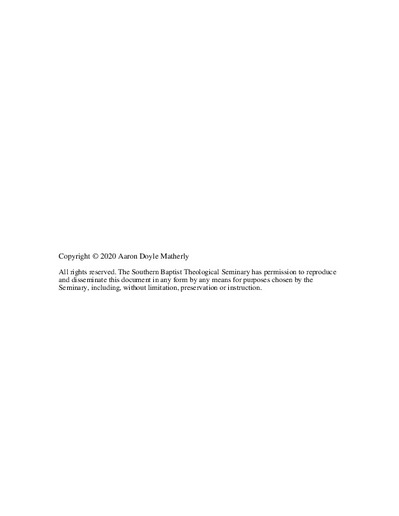| dc.description.abstract | This dissertation argues that the Venerable Bede held to and promoted an Augustinian theology of grace: humanity is hopelessly corrupted by the fall, and only through God’s gracious election and the bestowal of good gifts to his elect could one hope to escape judgment and receive eternal life. Chapter 1 sets the context of the discussion by surveying the history of research on Bede’s theology of grace, and by providing a brief synopsis of the monk’s life, career, and historical setting.
Chapter 2 provides an overview of Augustine’s theology of grace, with particular emphasis given to exploring works of the African bishop that were accessible to Bede. This discussion thus provides a standard by which to assess Bede’s own thinking on the matter.
Chapter 3 explores Bede’s theology of grace as found in his biblical commentaries, beginning with a discussion of the scholar’s exegetical method. Given the breadth of Bede’s exegetical works, this chapter limits the discussion to works most pertinent to the monk’s theology of grace from both his Old and New Testament commentaries, and thereby provides a representative sample of his teaching on the subject.
Chapter 4 examines Bede’s Homilies, which further reveal the influence of Augustine. Some discussion is also given seeking to reconcile the apparent inconsistency between Bede’s statements on grace and his emphasis in the Homilies on merit.
Chapter 5 discusses elements of Bede’s theology of grace found in his most well-known work, the Ecclesiastical History of the English People. In particular, this chapter highlights Bede’s commitment to an Augustinian theology of grace both in his frequent condemnations of Pelagianism, his assessment of the seventh-century Easter controversy, and his understanding of the English as an “elect people.” | en_US |

